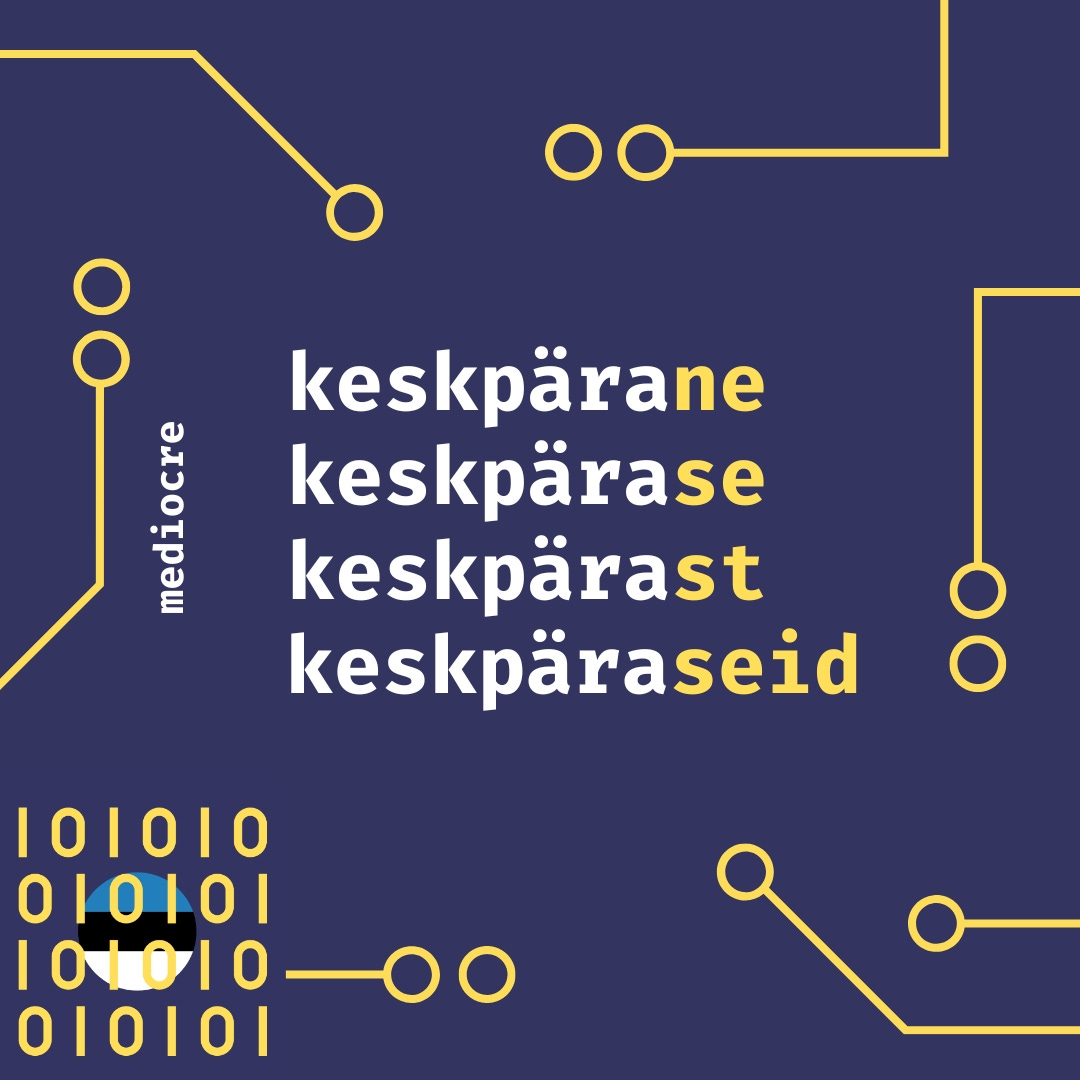Vocab: keskpärane
mediocre
mediocre; average; average in terms of characteristics, level, value; not bad but also not outstanding in any way
Building blocks
kesk- - "middle" or "center”
-pärane - this suffix is commonly used in Estonian to form adjectives and often conveys the meaning of "like" or "characteristic of"
Combined, "keskpärane" literally means "having the quality of being in the middle" or "characteristic of the middle." In a broader sense, it translates to "mediocre" or "average" in English, implying something is neither good nor bad but just in the middle.
How to use it:
Here are a few ways the word “keskpärane” can be used ⬇️
Describing the Quality of Work or Performance:
Näitleja sooritus selles filmis oli keskpärane, ta ei paistnud millegagi silma.
Translation: The actor's performance in the movie was mediocre; he didn't stand out in any way.
Describing the Quality of an Object or Experience:
Restorani toit oli keskpärane — täitis kõhu ära, aga ei jätnud erilist muljet.
Translation: The restaurant's food was mediocre — it filled the stomach but didn't leave a lasting impression.
Examples
Halva ilma tõttu olid sportlaste tulemused keskpärased
Literally: “Bad weather due to were athletes’ results mediocre”
Idiomatically: “Due to bad weather, the athletes' results were mediocre.”
Halva - Adjective - Genitive Sg, "Bad"
ilma - Noun - Genitive Sg, "weather"
tõttu - Postposition - Indeclinable, "due to"
olid - Verb - 3P Past Pl, "were"
sportlaste - Noun - Genitive Pl, "athletes'"
tulemused - Noun - Nominative Pl, "results"
keskpärased - Adjective - Nominative Pl, "mediocre"

